Solar Rooftop Subsidy: Why It’s Time for a Change of Mindset
Solar Rooftop Subsidy: Why It’s Time for a Change of Mindset
The Union Cabinet on 17th June, 2015 approved the revised target of 100,000 MW for solar power for 2022. This includes the target of 40,000 MW for solar rooftop projects.
Proposal for Solar Rooftop Subsidy
The Government also proposes to provide solar rooftop subsidy for projects to increase savings from rooftop solar. There was a provision for 30% capital subsidy for these projects under the Grid Connected Rooftop & Small Solar Plants Program of the Ministry of New & Renewable Energy (MNRE). This has recently been reduced to 15% of the total cost or Rs. 12.00 per watt, or Rs. 1.20 crore per MW. It is not clear whether this has come into effect as yet. In any case, there is a huge backlog in clearing pending subsidy payments under the erstwhile scheme.
The solar rooftop projects are increasingly becoming viable on their own on account of very high electricity tariffs in most States, particularly for commercial and industrial consumers, as well as high cost of captive diesel generation. On the one hand, and rapidly declining costs of photovoltaic generation, on the other hand. Therefore, capital subsidy is not really required any more.
In any case, the procedures for applying and claiming the subsidy from the MNRE and the State Nodal Agencies are complex, cumbersome and time-consuming. There are long delays in approval and disbursement on account of budgetary constraints.
Moreover, subsidies are self-limiting and distort markets. There is ample evidence of this from earlier programs driven by subsidy such as biogas, solar lighting and water heating which could never become truly commercial.
Also, frequent chopping and changing creates confusion among prospective consumers. Announcements about subsidy raise expectations among consumers who then wait to avail subsidy, which does not come or gets severely delayed. Thus depriving the market of those that would have otherwise decided on an already viable investment.
Suggestion 1
Government should instead utilize its funds and regulatory mechanisms to facilitate and support market development and commercialization. Support could be provided towards
- low-cost financing instruments to attract investments
- to the supply chain to produce quality products at lower cost
- for catalyzing new business models for implementation such as RESCOs
- for capacity building of Distribution Companies, banks and other stakeholders
- on awareness creation and public information
- on testing and standardization
- for creation of a skilled manpower pool to meet the gigantic goals
Suggestion 2
On the hand, the regulatory oversight needs to be tightened to ensure that
- mandatory orders are complied with
- net/gross metering gets implemented
- RPO obligations are met by all entities
- banks to the last branch are aware and abide by Orders of Priority Sector Lending and other instructions on lending to renewable energy projects.
Instead of subsidies, such facilitation and oversight would accelerate market development more effectively through measured and calibrated Government support thus enabling the overall target to be met successfully. This would, of course, require an all-round change of mind set in Government as well as the people.
Suggested Articles
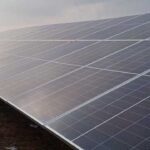
Solar Power System Efficiency: How to Calculate for Residential, Industrial & Commercial Use
Understand and measure your solar system’s performance. Maximize energy output at home, industrial units, and commercial buildings
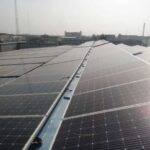
Can Solar Systems Support Industrial Motors and Machines? A Complete Guide
Discover how using solar for heavy machines can power industrial equipment reliably and cost-effectively for greener operations.
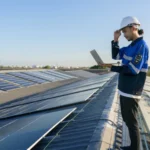
Net Metering and its Advantages
Net Metering allows solar panel owners to feed excess electricity back to the grid and earn credits, reducing energy bills. Learn the key advantages of net metering for homes and businesses.
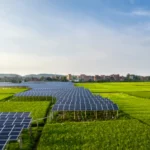
AVANCIS Pushes CIGS Thin-Film Solar Modules Beyond 20% Efficiency
AVANCIS achieves a breakthrough in solar technology, pushing CIGS thin-film modules beyond 20% efficiency for higher performance and energy output.

1 MW Solar Power Plant Cost in Rajasthan: A Complete Guide
A detailed guide on the cost of setting up a 1 MW solar power plant in Rajasthan. Learn about pricing, EPC components, land needs, subsidies, and expected payback for commercial and industrial users.
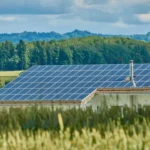
Difference Between Solar Power and Photovoltaic: Explained Simply
Total solar PV power represents the combined power output of a solar photovoltaic system. This guide explains its meaning, calculation, and how it directly impacts solar performance, efficiency, and long-term energy generation.
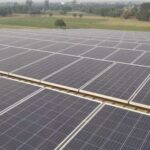
How to Maintain Solar Power System for Homes, Industries & Commercial Buildings
A solar power generating system converts sunlight into electricity for residential, industrial, and commercial use. This blog explains the components, working, and benefits of solar systems, helping you understand how to harness solar energy efficiently and sustainably.

Sustainable Solar Panel Disposal: Recycling for a Greener Future
Sustainable solar panel disposal ensures old or damaged panels are recycled responsibly, reducing waste and environmental harm. By adopting eco-friendly recycling and reuse practices, we can recover valuable materials, lower carbon impact, and make solar energy truly sustainable from installation to end-of-life.

SmartRoof Solar Associate Program – Easy Way to Earn with Solar Referrals
Join the SmartRoof Solar Associate Program. Refer solar leads, earn rewards, and support clean energy growth in your community.
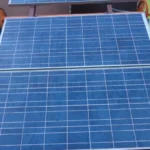
Choosing the Right Solar Panel: Complete Guide for India
Solar is among the fastest-growing industries in India. This is mainly because solar energy is not only renewable but is also attractive from a financial point of view.